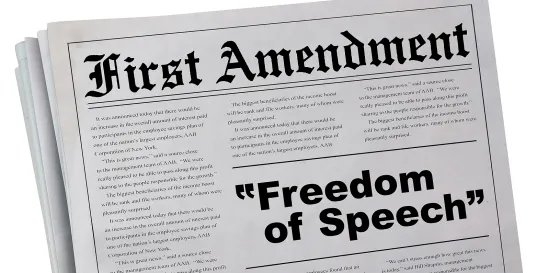In June of 2022, I reported on the adoption of commercial financial disclosure rules by the California Department of Financial Protection & Innovation. These rules were adopted pursuant legislation, SB 1235, that was enacted in 2018. In December of 2022, the Small Business Finance Association filed a challenge to those regulation in federal district court. A year later, U.S. District Court Judge R. Gary Klausner granted summary judgement in favor of the DFPI. Small Bus. Fin. Ass'n v. Hewlett, 2023 WL 3551061 (C.D. Cal. Mar. 30, 2023).
The SBFA challenged the DFPI's regulations on, among other grounds, as compelled speech in violation of the First Amendment to the United States Constitution. Judge Klausner applied the lower standard applicable to compelled speech that is "purely factual and uncontroversial". Under this standard, the government can compel speech that is reasonably related to a substantial government interest and not unjustified or unduly burdensome. Zauderer v. Office of Disciplinary Counsel of S. Ct. of Ohio, 417 U.S. 626 (1985).
In ruling that the DFPI's disclosure requirements were "uncontroversial", Judge Klausner observed that "an issue was debated during legislative rulemaking [sic] and is being litigated does not necessarily establish a "controversy" (emphasis added). However, if debate and litigation do not evidence a controversy, what does? Judge Klausner's ruling suggests that a controversy does not exist unless "reputable authorities" disagree.
I disagree, a controversy does not require that authorities disagree. A controversy simply requires disagreement. When there is disagreement, there is controversy. Because the existence of a controversy depends upon facts, I find it surprising that Judge Klausner granted the DFPI's motion for summary judgment, thereby depriving the SBFA of any opportunity to adduce evidence of a controversy.



 />i
/>i
